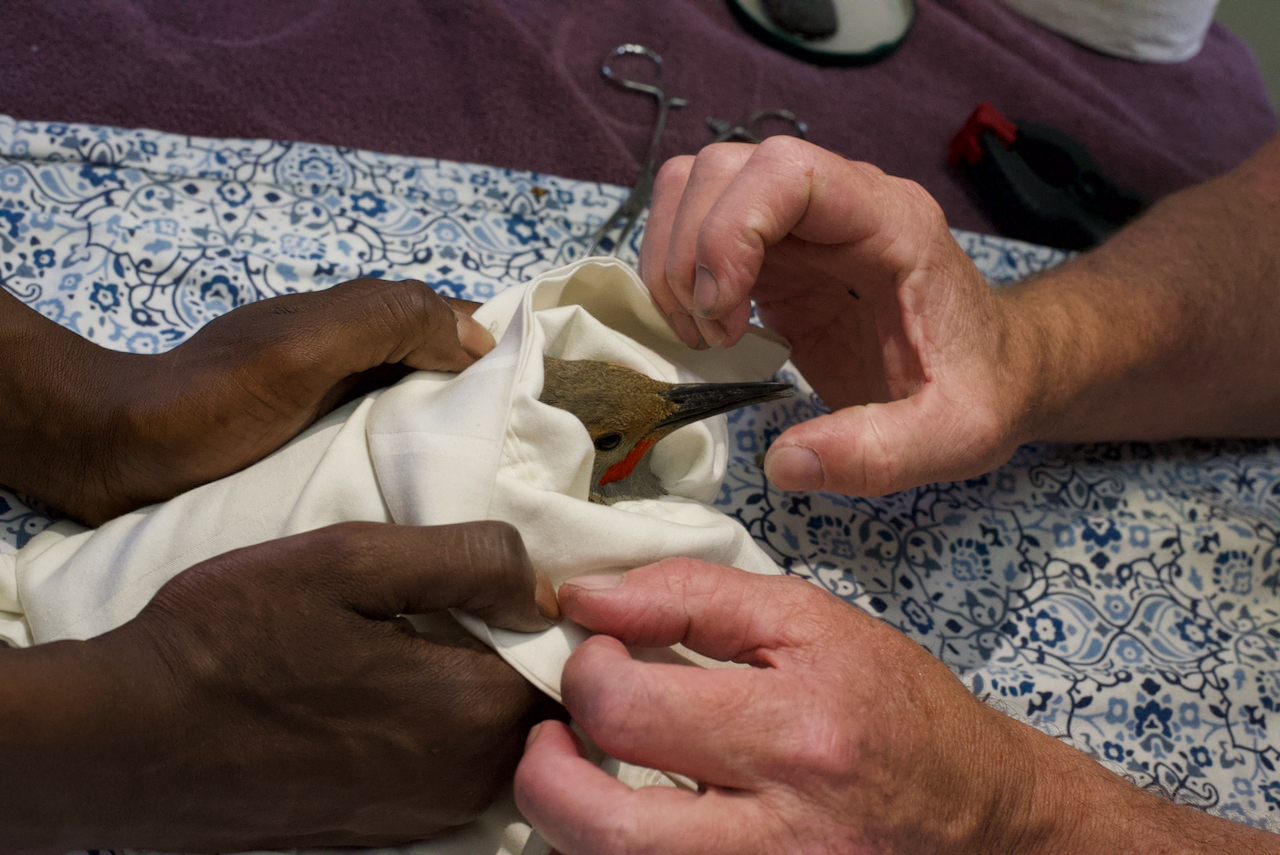
It’s a chaotic time in the world and in America especially, thanks to the coronavirus pandemic striking right when public leadership at the highest level in this country is at odds with public health. Every single day Humboldt Wildife Care Center/bird ally x opens our doors to the needs of our wild neighbors and no matter how frightening the times, our dedicated staff show up and get the job done. This is the first in a series of quick posts to catch up the news of our mission.
Here we are, past mid-July, and our pandemic year is only intensifying. It’s been a while since I’ve been able to take the time to write about our work. We rarely have time for more than a brief social media post to keep our supporters aware of how things are going. Our volunteer program remains in hiatus – to protect them, but also to protect our clinic and our mission. Our small wildlife hospital on Humboldt Bay is the only thing of its kind across three counties and we must stay covid-free. Most days we are grossly understaffed. On top of that our caseload is greater than ever – we’ve already provided care for nearly 900 wild neighbors this year to date! Since its founding in 1979, HWCC has not treated so many patients in one 6 and a half month period. In 2013 we treated just over 900 animals for the whole year!
Through our humane solutions program, we’ve helped keep dozens of wild families together, preventing senseless deaths of mother raccoons and skunks, and protecting their babies from becoming orphans. Still, even with these efforts, we currently have more than 75 orphaned wild babies in care.
Right now we are caring for 11 Black-tailed Deer fawns, 14 baby Raccoons, a dozen Striped Skunk babies. Two days we ago released four young American Robins we’d cared for since they were nestlings. We’ve treated Western Gray Squirrels, Deer mice, Opossums, various species of Swallows. Today or tomorrow we’ll be releasing 2 young Great Blue Herons whose nest was destroyed in the windstorm of mid-May. Now they are fully grown and able to hunt for their own fish. We’ll be taking them back to the Trinity River.
For the last two months, four young Gray foxes have been growing up in our care. The stage where we provide them live crickets to begin their lessons in providing their own meals has begun. The joy of helping these young intelligent predators reach their true destiny is indescribable. Pictures help!

Currently we also have 3 baby Common Murres in care, and several more brought to us as they were dying. Sad as this is, it might be a good sign for the local population of Common Murres, as the last few years their breeding colonies had largely failed, and this might mean that there are more babies making it to sea this year.
Not only our increased workload with decreased staffing has cost us, though; a huge stress has been the funding. As the pandemic has hit our human economy hard, it has taken a toll on the resources available for our wild neighbors, wild neighbors who are in our care because of what the human built world has done to them. It’s been hard to ask for financial support during a time of such economic stress, but we aren’t going to be run on magic forever. We do have a real electric bill, water bill, rent bill, fish bill, staff wages and more to pay. Right now we need your help. It’s critical.
To all who’ve been supporting us through this, thank you. Your contributions are more than material. You lift our spirits too.
Please contribute if you can. Every little bit helps.
Thank you for helping keep our doors open!


